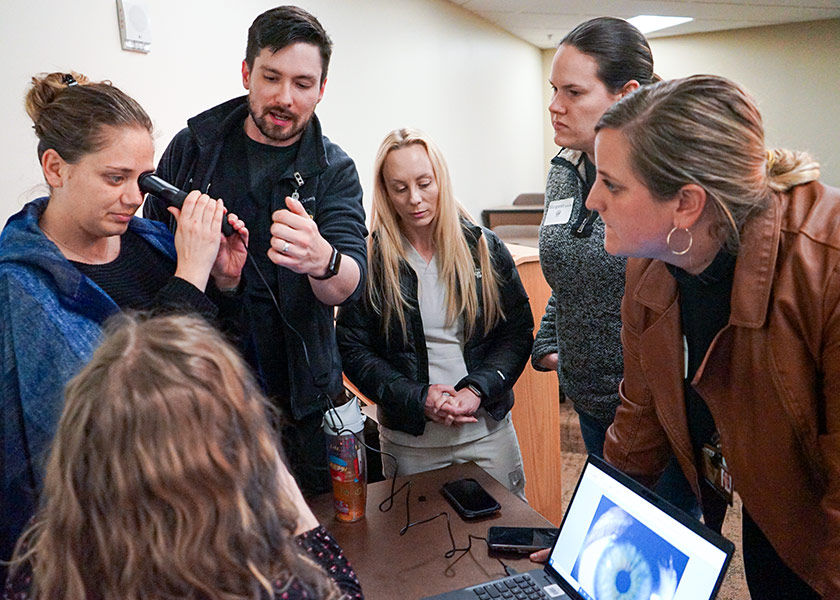
Two Vanderbilt School of Nursing professors have received grants totaling more than $3 million from the Health Resources and Services Administration to educate nurse practitioners to provide critical health care in rural and underserved areas.
Ginny Moore, MSN’90, DNP, associate professor and director of the women’s health nurse practitioner specialty, will receive $1.5 million over three years to continue and enhance the Vanderbilt Nursing Education Program–Sexual Assault Nurse Examiners, begun in 2018. The VEP-SANE program is designed to add more sexual assault nurse examiners in needed geographies, including rural and underserved locations across the U.S.
Vanderbilt’s program will enroll 42 students in didactic training and a virtual, interactive clinical immersion. The students will be taught how to provide telehealth care with existing equipment available in low-resourced locations, and they will learn via expanded simulations how to provide essential care to persons who have been sexually assaulted. The program also will arrange 40-hour clinical preceptorships at high-volume, forensic nurse exam sites where trainees can work toward achieving clinical competencies. After clinical competencies are demonstrated, trainees may begin practicing independently as SANEs in their communities while accruing the clinical hours required for certification exam eligibility.
“We are so excited to continue the work we started in 2018 and grateful for the opportunity the grant provides to positively impact the course of recovery for survivors of sexual assault,” Moore said.

Marci Zsamboky, PMC’17, DNP’18, assistant professor of nursing, will receive $1.92 million over three years to support the behavioral health workforce education and training program within the school’s psychiatric mental health nurse practitioner (lifespan) specialty. The grant will be used to improve the number of graduated Advanced Practice Registered Nurses prepared to deliver safe, high quality, culturally competent behavioral health care in rural and underserved areas.
“Individuals living in rural and underserved areas frequently have unmet behavioral health needs due to an inadequate workforce,” Zsamboky said. “Participation in this important grant will prepare our nurse practitioner graduates to be a part of the solution nationwide.”
The program’s students will participate in a six- to seven-month clinical immersion at practice partner sites across Tennessee and gain experience integrating behavioral health care, psychopharmacology and telehealth. The program’s practice partner sites are in areas that lack access to care and have poverty and uninsured rates higher than the national averages of 10.2 percent and 13.9 percent, respectively.
The program also will educate PMHNP students in community resilience, telehealth, youth violence, vulnerable youth issues (such as LBGTQ+ and homelessness), substance use disorder, digital health literacy, social determinants of health, trauma-informed care, and integrated primary and behavioral health care.
Photos: Caroline Taylor, Anne Raynor
Image, top:
Simulation Lab Nurse Eric Hall, MSN’18, guides VUSN Sexual Assault Nurse Practitioner program students examining for eye damage.
Image, right:
PMHNP students will benefit from immersions in clinics serving rural or low income populations like Nashville’s Clinic at Mercury Courts. Left, PMHNP Jordan Plaxico, MSN’16, and Jenna Pemberton, LMSW, at Mercury Court in 2017.